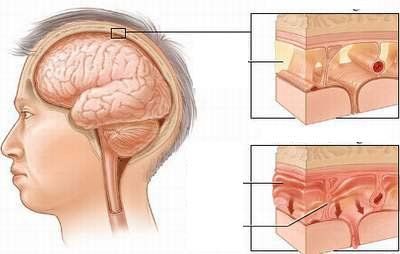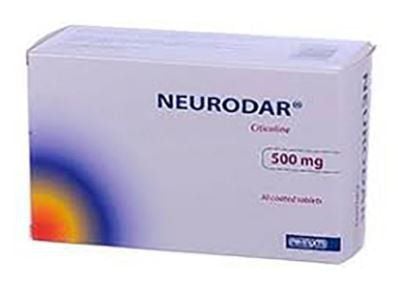This is an automatically translated article.
Brain diseases come in many different forms. Infections, trauma, stroke, epilepsy, and tumors are some of the major brain pathologies. Here is an overview of different diseases of the brain.
1. Neurodegenerative encephalopathy
Brain diseases related to neurodegenerative conditions include:
Parkinson's disease: Parkinson's is a slow degeneration of the nerves in the central area of the brain, causing movement problems. and coordination. The initial signs are shaking hands, numbness of the limbs and trunk, slow movement, unstable posture. Huntington's disease: Huntington's disease is an inherited neurological disorder that causes degeneration of brain cells. Symptoms include memory loss and difficulty controlling movements (chorea). The early signs of the disease are mood swings, depression, and irritability. Pick's disease (frontal dementia): Over the years, large areas of nerves in the front and side of the brain are destroyed due to the accumulation of an abnormal protein. Symptoms include personality changes, inappropriate behavior, difficulty speaking, memory loss and intellectual ability. Pick's disease progressed steadily. Amyotrophic lateral sclerosis (ALS): ALS is also known as Lou Gehrig's disease. In ALS, the nerves that control muscle function are destroyed regularly and rapidly. ALS gradually progresses to paralysis and inability to breathe without the help of machines. Cognitive function is generally not affected. Dementia: Dementia is a decline in cognitive function caused by the death or malfunctioning of nerve cells in the brain. Degeneration of nerves in the brain, as well as alcohol abuse and stroke, can cause dementia. Alzheimer's disease: For reasons that are not clear, nerves in certain brain regions degenerate, causing progressive loss of memory and mental function, and changes in behavior and personality. The accumulation of abnormal tissue in regions of the brain, commonly known as the plexus and plaques, is thought to be the cause of the disease. Alzheimer's disease is the most common form of dementia.

Parkinson, Huntington, Pick, ALS, sa sút trí tuệ, Alzheimer,... là một số căn bệnh về não liên quan đến thoái hóa dây thần kinh.
2. Infectious encephalopathy
Brain diseases in the category of infections include:
Meningitis : Meningitis is an inflammation of the lining around the brain or spinal cord, usually caused by an infection. Stiff neck, headache, fever, and confusion are common symptoms. Encephalitis: Encephalitis is usually caused by a virus. Meningitis and encephalitis often occur together, known as meningoencephalitis. Brain Abscess: A brain abscess is an infection in the brain usually caused by bacteria. Antibiotics and surgical drainage are commonly used to treat brain abscesses.

Viêm màng nào, áp xe não, viêm não là các bệnh về não do nhiễm trùng.
3. Epilepsy encephalopathy
Epilepsy is in the category of brain diseases. The condition is characterized by recurrent seizures caused by abnormal and excessive electrical activity in the brain. Head trauma, brain infections, and strokes can also cause epilepsy.
4. Traumatic encephalopathy
Traumatic encephalopathy includes the following conditions:
Concussion: An traumatic condition that causes temporary brain dysfunction, sometimes unconsciousness and confusion. Head trauma causes concussions and can lead to headaches along with problems with concentration and memory. Traumatic Brain Injury: Traumatic brain injury is common permanent brain damage caused by head trauma. The result is marked mental impairment or changes in personality and mood compared to pre-traumatic events.
5. Brain diseases caused by tumors and increased intracranial pressure
Types of tumour-related encephalopathy, increased intracranial pressure include:
Brain tumor : Brain tumor caused by abnormal cell division in the brain. Whether malignant or benign, brain tumors have negative effects on brain function. Glioblastoma: Glioblastoma is a cancerous brain tumor. The disease progresses rapidly and is often difficult to cure. Hydrocephalus: Hydrocephalus is an abnormal increase in the cerebrospinal fluid inside the skull. Usually, this is because the fluids are not circulating properly. Normal pressure ventricular dilatation: Normal pressure ventricular dilatation is a form of hydrocephalus that often causes problems with movement, along with dementia and urinary incontinence. The pressure inside the brain remains normal, although the amount of fluid increases. Pseudotumor cerebri (pseudogout): A pseudotumor is an unexplained increase in pressure inside the skull (although it is associated with obesity or weight gain). Vision changes, headaches, dizziness, and nausea are common symptoms of pseudotumor brain tumors. The disease can also lead to blindness.

U não gây ra các tác động tiêu cực đến chức năng hoạt động của não bộ.
6. Brain disease related to blood vessels
Brain diseases involving blood vessels include:
Stroke : A stroke is a sudden interruption of blood and oxygen flow to an area of brain tissue, causing brain cell death. Patients are at increased risk for complications such as paralysis, vision, speech, and sensory problems. Ischemic stroke: An ischemic stroke is a condition in which a blood clot suddenly develops in an artery or forms elsewhere in another artery and bursts, lodges in a blood vessel in the brain. block blood flow, causing a stroke. Hemorrhagic stroke: Bleeding in the brain blocks and puts pressure on brain tissue, reducing blood flow and causing a stroke. Cerebrovascular accident (CVA): Another name for stroke. Transient ischemic attack (TIA): A transient ischemic attack is a temporary interruption of blood and oxygen flow to part of the brain. The disease has similar symptoms to a stroke such as completely disappearing (within 24 hours) without causing brain tissue damage. Brain Aneurysm: A brain aneurysm is an area of an artery in the brain that weakens and bulges like a balloon. A ruptured brain aneurysm causes a bleeding stroke. Subdural Hematoma: A subdural hematoma is bleeding on the surface of the brain. The disease can put increased pressure on the brain, causing nerve problems. Epidural Hematoma: An epidural hematoma is bleeding between the skull and the dura mater of the brain. Blood often flows from an artery, right after a head injury. Symptoms of the disease progress rapidly from mild to unconsciousness and death, if not treated promptly. Brain Hemorrhage: Hemorrhage in the brain can occur after an injury or stroke caused by high blood pressure. Cerebral edema: Brain swelling is caused by various causes such as trauma or electrolyte imbalance.

Đột quỵ là một trong các bệnh về não liên quan đến mạch máu não.
7. Encephalopathy due to autoimmune reaction
Brain diseases associated with autoimmune conditions include:
Vasculitis : An inflammation of the blood vessels of the brain that can lead to confusion, seizures, headaches, and unconsciousness. Multiple sclerosis (MS) is a condition in which the immune system mistakenly attacks and damages the body's nerves. Muscle spasms, fatigue, and weakness are characteristic symptoms of the disease. The disease can progress steadily or suddenly. If you have any problems related to the brain that need the advice and examination of specialists, please come to Vinmec International General Hospital for timely diagnosis and treatment. Vinmec International General Hospital is one of the hospitals that not only ensures professional quality with a team of leading doctors, modern equipment and technology, but also stands out for its examination and consulting services. and comprehensive, professional medical treatment; civilized, polite, safe and sterile medical examination and treatment space. Customers when choosing to perform tests here can be completely assured of the accuracy of test results.
Please dial HOTLINE for more information or register for an appointment HERE. Download MyVinmec app to make appointments faster and to manage your bookings easily.
Reference source: webmd.com













